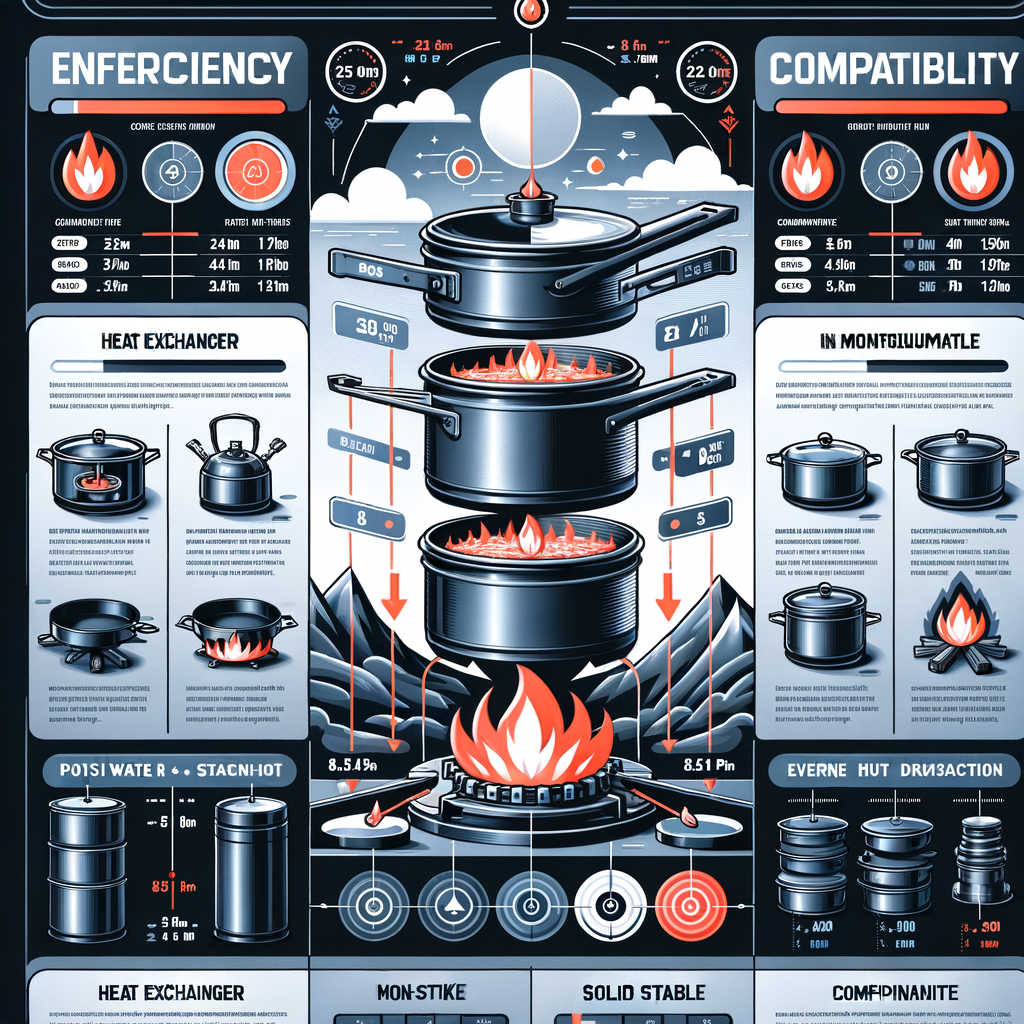Top Blogging Tools for 2024 [Updated]
There are hundreds of content creation tools out there, all vying for your attention. Most of these are not fit for purpose, but the sales pages are phenomenal. Some tools are rightly called powerhouses, because they deliver sterling results. .These powerhouse blogging tools can elevate your content, but more importantly, they help mt to optimize my workflow. They transform my sometimes scattered thoughts into polished, compelling blog posts that people want to read. By strategically choosing and using the best blogging tools, you unlock the potential to streamline your content creation. With the optimal blogging tools, your writing will be more precise, your posts will be more engaging, and your results will show a significant improvement. So, if you’re ready to boost your blogging success, let’s explore my must have tools that could change how you write forever. All of these tools I use. This isn’t just some random “listicle” post of blogging tools. It is al ist of tools I use on a daily basis.
Top Blogging Tools for 2024
In the bustling universe of blogging, tools are the magic wands that can transform an overwhelming task into a streamlined, efficient process. Whether you’re a newbie just starting out or a seasoned blogger, the right tools are essential in crafting a successful blog. Blogging isn’t just about writing; it’s weaving together unique thoughts with technical finesse to build a magnetic presence. But what exactly are blogging tools, and why are they so important?
my Favorite training.

Understanding Blogging Tools
What are Blogging Tools?
Blogging tools are applications, software, and platforms designed to help bloggers create, manage, and grow their blogs. They aid in various tasks, from writing and editing to promoting and analyzing content. Imagine trying to build a house with your bare hands alone; it seems almost impossible, right? But with the right set of tools, the task becomes manageable and even enjoyable.
Some common types of blogging tools include:
- Content Management Systems (CMS): Such as WordPress, which provide structure and ease for publishing content.
- SEO Tools: Like Ahrefs, which help in optimizing your content for search engines.
- Editing Tools: With features like grammar check and style suggestions, for instance, Grammarly.
- Social Media Tools: For scheduling and analyzing your posts on social media platforms.
Why Are Blogging Tools Essential?
Blogging tools are crucial for a myriad of reasons. They offer bloggers the ability to focus more on creating quality content rather than getting bogged down by technical issues. Imagine trying to drive a car with square wheels; it simply doesn’t work well. Similarly, blogging without effective tools can lead to a bumpy and frustrating journey.
Here’s why bloggers swear by these tools:
- Time-Saving: Automation of tasks like scheduling posts or emails.
- Enhanced Quality: Tools for checking grammar, readability, and more ensure your content is polished.
- Boosted Engagement: Analytics tools help understand what readers want, helping improve engagement.
- Increased Reach: SEO tools optimize posts to rank higher in search engines.
Using the right blogging tools can turn your blog from a side hobby into a full-fledged operation. They are, in essence, the unsung heroes that work behind the scenes to make sure your blogging experience is smooth and successful.
For more resources on effective blogging tools, you can check out HubSpot’s guide on the best blogging tools and Writesonic’s essential blogging tools guide.
Categories of Blogging Tools
In the blogging universe, the right tools are like trusty sidekicks, helping you create, enhance, and spread your content like wildfire. Whether you’re an experienced blogger or a beginner dipping your toes into this vast ocean, these essential categories of blogging tools will be your best allies.
Content Creation Tools
Creating engaging content is the heartbeat of any successful blog. To produce captivating posts, you need tools that ease the creative process:
- Grammarly: A great tool to ensure your writing is clear and error-free. It’s like having a personal grammar coach.
- Canva: For those times when your words need a visual companion, Canva allows you to design stunning graphics without any design degree.
- Narrato: This all-in-one platform can be your go-to for drafting anything, from a simple blog post to elaborate social media content. Check out a comprehensive list of content creation tools for more options.
SEO Optimization Tools
Imagine you have the best blog in the world but nobody finds it. That’s where SEO tools come into play. They help your blog reach the right audience:
- Yoast SEO: A must-have for WordPress users, this plugin is like a GPS for SEO, guiding you through the maze of meta tags and keyword optimization.
- SEMrush: A versatile tool for tracking your SEO ranking and finding the perfect keywords. Discover more powerful SEO tools to boost your blog’s visibility.
Design and Visual Tools
A picture may be worth a thousand words, but only if it’s well-designed. Visual tools ensure your blog looks professional and polished:
- Adobe Express: For scaling your design efforts, Adobe Express provides templates and tools to shine visually across platforms.
- Piktochart: Craft infographics that captivate and inform. Dive into design tools that can elevate your visuals.
Marketing and Promotion Tools
Creating great content is just half the battle. These tools help you spread the word:
- Buffer: Schedule your posts across platforms, so you’re always in your audience’s line of sight without burning out.
- Hubspot: This one-stop marketing hub can handle everything from emails to social media, keeping your promotional efforts seamless. Explore marketing tools that will help amplify your message.
Analytics and Performance Tools
Knowing how your blog performs is critical. These tools give you insight into what’s working and what’s not:
- Google Analytics: Like a magnifying glass for your blog, showing who visits and what they love about your content.
- Hotjar: Visualize user behavior and understand where they engage the most, helping you optimize for better results. Discover more analytics tools to fine-tune your blog’s performance.
Harness these tools, and you’ll transform your blogging game from a whisper to a roar. Each category plays a unique role, but together, they form the cornerstone of a thriving blog.
Integrating Tools into Your Workflow
Blogging isn’t just writing; it’s about creating an experience. Having the right tools at your fingertips can transform your blog from a simple webpage into a thriving digital platform. Integrating tools smoothly into your workflow allows for seamless content creation, more efficient processes, and ultimately, a stronger connection with your audience. Let’s look at some ways to make that happen.
Choose the Right Tools
When it comes to choosing the right tools for your blog, think of it as crafting your own unique toolbox. Not every tool will fit every blogger’s needs, but investing time in finding the perfect tools is like having the right seasoning in a recipe — it can make all the difference.
- Identify Your Needs: Start by understanding what you need. Content creation, SEO optimization, social media management, and analytics are core areas to consider. Companies like HubSpot have published helpful guides on various tools.
- Test and Evaluate: Before committing, try out free versions or trials. This hands-on approach lets you see if a tool suits your workflow.
Best Combinations for Specific Goals
Sometimes, it’s not just about the tools but how they work together. Imagine pairing a hammer with nails; alone, they’re just objects, but together they can build something sturdy.
- Content Creation and Editing: Use Grammarly with Google Docs for smooth writing and editing. Grammarly’s real-time grammar suggestions paired with Google Docs’ collaborative features can make content creation a breeze.
- SEO and Analytics: Pairing tools like Rank Math with Google Analytics can help enhance your SEO strategy. Rocket Matter provides insight into some excellent blogging tools for SEO and analytics.
Integrating Tools into Daily Routines
Here’s where the magic happens. You’ve got your tools, and you’ve paired them, but how do you fit them into your daily routine? Think of it like preparing your morning coffee; once you find your groove, it becomes second nature.
- Set a Schedule: Allocate time specifically for working with your tools. This ensures they become a natural part of your workflow without overwhelming you.
- Automate Where Possible: Tools like Zapier can automate repetitive tasks, giving you more time for creativity and strategy.
Keep It Updated
Technology evolves rapidly, and so do the tools you rely on. Regular updates not only offer new features but often enhance security and performance. Make sure to check for and install updates regularly to enjoy the best in tool optimization and functionality.
By thoughtfully integrating these tools into your blog’s workflow, you can make your blogging process as smooth as possible. After all, in the world of blogging, it’s the efficient use of tools that can turn a simple hobby into a powerful storytelling platform.
For more in-depth insights, you can check out resources like HubSpot’s Blog that lists over 35 tools to grow your blog in 2024, or Fat Stacks Blog for recommendations on tools for building a successful blog portfolio.
Frequently Asked Questions
Blogging isn’t just typing words and publishing them on the internet; it’s an art and a science. The right tools can make all the difference in creating a successful blog. From writing aids to graphics and SEO, understanding which tools are best suited to your needs can be a game-changer. Let’s tackle some of the frequent questions you might have about blogging tools.
What are the best tools for beginner bloggers?
Starting a blog might seem daunting at first, but with the right tools, it becomes as smooth as butter on warm toast. Beginner bloggers often wonder where to start. Here are some tools that can help you lay a solid foundation:
- WordPress: It’s like the Swiss Army knife of blogging, offering everything from design customization to powerful plugins.
- Grammarly: Think of it as your digital writing assistant, catching errors you might miss.
- Canva: Unleash your inner artist with easy-to-use design tools to make your blog posts pop.
- Google Analytics: Your personal data detective, helping you understand your audience’s behavior.
For a comprehensive list of beginner tools, check out this resource.
 Photo by Berna Tosun
Photo by Berna Tosun
How can SEO tools improve my blog’s visibility?
In the vast ocean of the internet, SEO is your lighthouse. SEO tools help your blog shine and stand out. Here’s how:
- Keyword Analysis: Know what your audience is searching for.
- Content Optimization: Make sure your content is relevant and engaging.
- Backlink Tracking: Keep an eye on who’s linking to you.
- Performance Metrics: Track your blog’s speed and usability.
Tools like SEMrush and Ahrefs can make SEO a breeze.
Are there free blogging tools available?
Absolutely! Even if you’re tight on budget, you can still access great tools at no cost. Here are some gems:
- Wix: Offers free hosting with a range of design options.
- Medium: A simple platform to get your thoughts out there.
- Grammarly: The free version still packs a punch.
There’s a full list of free blogging alternatives over at this site.
How do graphic tools enhance my blog?
A picture is worth a thousand words, isn’t it? Graphic tools can transform your blog from plain to spectacular. Here’s why they matter:
- Engagement: Visuals capture attention and keep visitors longer.
- Brand Identity: Consistent graphics help establish your blog’s style.
- Social Shareability: Eye-catching images are more likely to get shared.
Read more about enhancing your blog’s visuals from this guide.
Which tools help with audience engagement?
Keeping your readers hooked is key. Specific tools can amplify audience interaction and keep them coming back for more:
- Mailchimp: Engage via newsletters and updates.
- Disqus: A powerful commenting system for discussions.
- Live Polls and Quizzes: Engage readers with interactive content.
For further ideas, explore these audience engagement tools.
How do I choose the right tools for my needs?
Choosing the right tools is like finding the perfect pair of shoes. It has to fit your style and needs. Here’s a guide to help you decide:
- Understand Your Goals: What do you want to achieve?
- Evaluate Your Budget: Know your financial limits.
- Test Usability: Try before you commit.
Check out this helpful guide on choosing tools.
Can I integrate multiple tools seamlessly?
Many bloggers worry if different tools can work together without fuss. Luckily, integration tools make this possible:
- Zapier: Connects your apps and automates workflows.
- Integromat: Another powerful integration platform.
Learn about seamless integrations here.
What are the latest trends in blogging tools?
Blogging tools evolve as technology rolls forward. Here’s what’s hot this year:
- AI Content Creation: Let AI help with ideation and drafting.
- Interactive Multimedia: Incorporate video and interactive graphics.
- Data-Driven Blogging: Leverage analytics for content strategies.
Stay updated with the latest blogging trends.
Keep these FAQs in mind as you navigate the blogging experience. Remember, the right tools not only enhance the performance of your blog but also elevate your confidence as a writer.
Conclusion
Blogging tools are vital for creating engaging content and streamlining your workflow. They simplify tasks like SEO, editing, and content planning, letting you focus on delivering value to your audience.
By integrating the right tools into your routine, you can enhance the quality and reach of your blog. It’s time to take action and explore these resources to maximize your success.
Think about which tools align with your blogging goals and start experimenting. Each step forward opens new opportunities for creativity and growth.
What tools might you need today to elevate your blogging journey? Your future self will thank you.
Final Thoughts
Blogging can sometimes feel like steering a ship without a compass. But the right tools serve as that compass, guiding you through the waves of ideas, content creation, and audience engagement. By choosing effective tools, your blogging journey becomes less about treading water and more about sailing smoothly toward your goals.
Empower Your Writing Journey
With the right blogging tools, your words become more than just text. For instance, Grammarly enhances your writing by catching pesky typos or awkward phrases that might disrupt the reader’s experience. Tools like Yoast SEO ensure that your blog reaches the audience it deserves by optimizing search engine visibility. Think of these tools as your personal editor and promoter, always ready for the next challenge.
Streamlining Content Management
Managing a blog is much more than just writing. It’s about maintaining a steady content flow, keeping ideas fresh, and staying organized. Platforms like Trello can help keep your thoughts and plans in order. It’s like having a trusty notebook but with the added benefit of sharing with team members or collaborators.
Benefits You Can’t Ignore
- Increased Efficiency: Save time with automated tools that manage routine tasks.
- Improved Quality: Enhance your content’s value and reach with advanced SEO features.
- Better Organization: Keep track of your content calendar and never miss a posting schedule.
Engaging with Your Community
Finally, blogging is about building a community. Social media tools, such as BuzzSumo, allow you to listen in on what your audience is buzzing about. You’ll feel the pulse of your community, creating a sense of connection and insight that a static blog post can’t always offer.
Inspire and Explore
By embracing these tools, you’re not just improving efficiency or creativity. You’re building a toolbox tailored to your unique blogging voice and vision. Remember, the best tools can propel you beyond mere existence, taking you to success and fulfillment in the digital world.
 Photo by RDNE Stock project
Photo by RDNE Stock project
My experience With Chasing Money?
Well my first niche was “acne” and I wrote 400 articles of 500 words each. Articles were shorter back in the day, but that was still 20,000 words. Imagine the trauma of writing 20,000 words about pimples. If it had been for my own business, I might have tolerated it. But no, it was for freelance work, and I didn’t see a penny of those pus-filled profits. For the next 25 years, just hearing the word “pimple” made me want to toss my cookies. If I ever meet acne again, I’m sending it a bill for emotional distress!
How Does Your Passion Solve a Problem?
Once you pinpoint your passion, it’s time to assess its potential to succeed in the online marketplace. The digital world is vast, but so is the opportunity to find a corner that resonates with your unique interest. Think about how your passion solves a problem or adds value to people’s lives, and you’ve found where you can shine.
Sustainability is Key.
Sustainability is key. Your passion must be like a cockroach—able to survive the nuclear fallout of the ever-changing online business landscape. It means making sure people still want what you’re selling even after the latest TikTok trend dies and that your enthusiasm doesn’t vanish faster than a New Year’s resolution.
in 17 Years at Wealthy Affiliate I have seen a lot of Entrepreneurs turn their Passion into profit.
The beauty of niche affiliate marketing is that it allows you to focus on a specific segment of the market, providing value to a targeted audience and building a dedicated following that trusts your recommendations.
Pat Flynn
Identifying Your Passions and Skills
- My Experience; – it’s crucial it is to align your business with what you genuinely enjoy and what you’re good at. This coherence isn’t just about job satisfaction; it’s about the natural advantage you gain in a competitive digital marketplace. Let me explain how you can turn your personal interests and expertise into a profitable business idea.
2. Begin with introspection. List down activities that fascinate you or those tasks you excel in. It could be anything from making handcrafted items to expertise in digital marketing. Passion often translates to motivation, and skills translate to the value you’ll offer your clients or customers. If you’re excited about what you’re doing, it’s infectious. Potential customers can sense that enthusiasm, and it can be a powerful driver for business growth.
Passion Driven Entrepreneurship
3. Choose a hobby. I’ve seen many entrepreneurs succeed by merely transforming their hobbies into income streams. For instance, consider a graphic designer who loves creating artwork for tabletop games. By identifying a niche within the game industry, they could specialize in designing cards or promotional materials for game companies. That’s how a personal hobby can evolve into a thriving business.
4. the core principle holds true: Passion-driven entrepreneurship not only taps into your innate strengths but also provides a clearer path to building expertise and establishing a loyal customer base. Before moving forward, ensure you’ve pinned down what excites you and where your competencies lie. With that foundation, you’ll be in a strong position to identify market demand, which I’ll cover in the next step.

In Conclusion,
Choosing a niche business is not difficult but best done before you start content creation. Your future as an online entrepreneur begins now. Go out there, apply what you’ve learned, and start building something outstanding. Remember, great things often have small beginnings, and your niche could very well be your stepping stone to greatness. Wealthy affiliate has all the tools you need to create a sustainable and profitable business.













